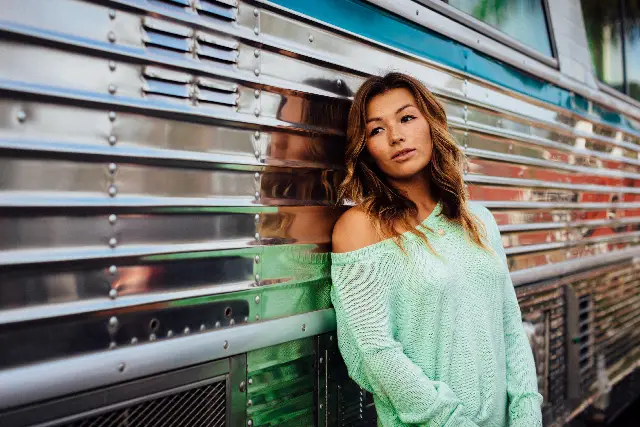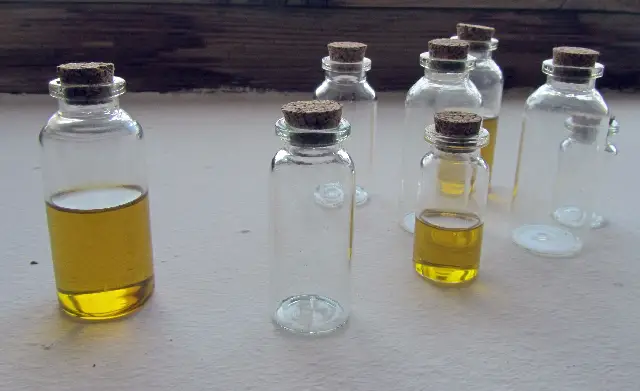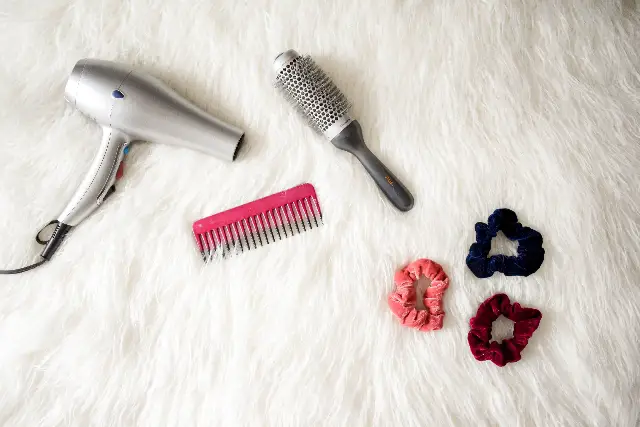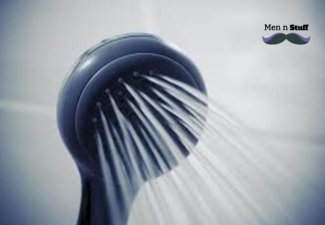Hair shines when the cuticle lies flat, reflecting light. Natural oils contribute to shine. Around 90% of people’s hair is shiny but not oily. Balance in sebum production, proper cleansing, and overall hair health influence this appearance.
Why is My Hair Shinny but Not Oily? – How to Achieve the Perfect Balance
Your scalp naturally produces oil, essential for keeping your hair healthy and hydrated. But when you have too much oil on your scalp, it can make your hair look greasy. On the other hand, if you don’t have enough oil on your scalp, your hair can look dry and dull. So how should you achieve the perfect balance?
It all depends on your area’s climate and whether or not you use products that can strip away natural oils from your hair. If your climate is humid, like that of New Orleans, or if you use harsh shampoos or conditioners often, then chances are that you will produce more oil than someone who lives in a drier environment or uses gentle products. In this scenario, there are plenty of solutions to help keep excess oils at bay:
- Wash less frequently
- Use a clarifying shampoo
- Wet hair with cold water before washing
- Avoid using heavy styling products
How Dry, Oily, and Normal Hair Gets Oilier
Dry and damaged hair is prone to oiliness because the scalp produces sebum to compensate for the lack of moisture. If your skin is oily, then your hair will also be oilier. Overwashing can also lead to oiliness, as it strips away the scalp’s natural oils.
Those with normal hair don’t have to worry as much about oiliness, but it can still happen if you don’t often wash enough or use products that build up on the scalp. A common cause of excess oil, in this case, is a reaction to a product. The best way to combat this problem is by switching shampoos and conditioners every few weeks, allowing the scalp time to adjust before producing too much oil.
Tips: You can also use an apple cider vinegar rinse once a week to help balance the pH levels on your scalp. Never scrub your head when washing! Gentle massaging movements create less friction than vigorous scrubbing and will prevent breakage from occurring.

How to Tell if Your Scalp Isn’t Producing Enough Oil
If you notice that your scalp is dry, itchy, or flaky, it could be a sign that your scalp isn’t producing enough oil. Other telltale signs include dandruff, frizzy hair, and split ends. If you think your scalp might be lacking in oil, there are a few things you can do to help encourage production.
First, try using a more natural shampoo and conditioner. Look for products that contain ingredients like jojoba oil or coconut oil, which can help to hydrate the scalp. Before shampooing, try massaging your scalp with warm olive oil or avocado oil. Doing this once or twice weekly can increase blood flow to the area and promote healthy hair growth.
Tips to Make Your Hair Shine Without Oiliness
- Use a clarifying shampoo: If you have oily hair, it’s essential to use a shampoo that will remove excess oil and product build-up. A clarifying shampoo will do just that, leaving your hair clean and fresh.
- Rinse with cold water: Rinsing your hair with cold water can help seal the cuticle, making your hair appear shinier.
- Don’t over-wash your hair: Washing it often can strip it of natural oils, making it look dull and lifeless. Aim to wash every 2-3 days or as needed.
- Use a volumizing shampoo and conditioner: To get fuller-looking locks, try using a volumizing shampoo and conditioner designed for this purpose. They’ll leave your hair soft, shiny, and full of volume without weighing it down like traditional shampoos.
- Switch up your products: Sometimes, all you need is a new product! Pick up some dry shampoo at the drugstore if you’re washing more than usual due to product build-up in your hair strands.
So, How Do You Maintain Healthy Hair?
There are various ways you can use to maintain healthy hair. Here is how:
Use Castor Oil
If you’re wondering why your hair is shiny but not oily, it could be because you’re using the wrong products. Castor oil is a natural oil that can help make your hair shiny and healthy. It’s rich in vitamins and minerals, and it can also help to moisturize your scalp. To use castor oil, simply massage it into your scalp and hair before washing it off. You can as well add a few drops to your shampoo or conditioner. In addition to making your hair shinier, castor oil will also strengthen your hair and promote faster growth.

Use Argan Oil Shampoo
Do you have shiny hair that is not oily? It could be because you’re using the wrong shampoo. Argan oil shampoo can help make your hair both shiny and healthy. Here’s how to choose a good argan oil shampoo:
- Does it have natural ingredients?
- Is it sulfate-free?
- Does it contain Moroccan argan oil or other types of oils?
- How does it smell? Does it have a pleasant scent to it?
- What are its benefits for your hair type, e.g., dry, damaged, color treated, normal, etc.?
Nourish with Marine Botanicals
Your hair resembles a sponge; it can only absorb so much oil before it looks greasy. When you over-wash your hair, you strip away the natural oils that keep your scalp and strands healthy. This can lead to dryness, brittle strands, and increased oil production.
Nourishing your hair with marine botanicals can help replenish lost moisture and restore balance to the scalp. Marine botanicals are rich in nutrients that support healthy hair growth and protect against environmental damage. They have anti-inflammatory properties that soothe the scalp and reduce irritation.
Condition Your Hair While Brushing
Start by finding a conditioner that suits your hair type. Oily hair can benefit from a volumizing or clarifying conditioner, while dry hair does best with a moisturizing conditioner. Wet your hair and apply the conditioner to your scalp, then work it through to the ends of your hair.
Use a broad-tooth comb to detangle the hair, starting at the bottom and working up to the roots. Rinse the conditioner with cool water, then finish with a cold-water rinse to help seal the cuticle.

What makes hair shiny but not oily?
Hair appears shiny but not oily when a combination of factors, including the condition of the hair cuticle, sebum production, and hair care practices, are in balance. Here’s how each factor contributes to this desired outcome:
- Healthy Cuticle Structure: The outermost layer of your hair, the cuticle, plays a crucial role in determining how light reflects off your hair. When the cuticle is smooth and lies flat, it reflects light evenly, creating a shiny appearance. Healthy cuticles also prevent moisture loss, maintaining the hair’s natural luster.
- Balanced Sebum Production: Sebum, the natural oil produced by your scalp, helps moisturize the hair and adds shine. However, excessive sebum production can lead to oily hair. Striking the right balance is key. Factors like genetics, hormones, and diet influence sebum production. Regular cleansing practices help manage sebum levels.
- Proper Hair Care Practices:
- Regular Cleansing: Clean hair and scalp to ensure that natural oils are distributed evenly and not concentrated at the roots.
- Conditioning: Using a suitable conditioner for your hair type helps maintain moisture balance without causing excessive oiliness.
- Heat Styling: Excessive heat styling can damage the cuticle, leading to dullness. Using heat protectants and minimizing heat exposure helps retain shine.
- Avoiding Harsh Chemicals: Harsh shampoos or styling products can strip away natural oils, leading to dryness. Opt for gentle, sulfate-free products.
- Diet and Hydration: A balanced diet rich in vitamins, minerals, and essential fatty acids supports hair health and contributes to shine. Staying hydrated is also essential for maintaining hair’s moisture balance.
- Environmental Factors: Environmental stressors like pollution, UV rays, and excessive heat exposure can affect hair’s shine. Using protective products and minimizing exposure to harsh conditions can help maintain shine.
- Genetic Factors: Hair texture and natural shine are partly determined by genetics. Some individuals naturally have shinier hair due to their genetic makeup.
- Avoiding Overuse of Styling Products: While some styling products add shine, overusing them can lead to buildup, making hair appear dull and greasy.
- Regular Trims: Regular trims remove split ends and damaged hair, which can contribute to a lackluster appearance.
What does it mean if your hair is really shiny?
If your hair is exceptionally shiny, it indicates that the outer layer of your hair, known as the cuticle, is smooth and flat. This smoothness allows light to reflect uniformly off the hair surface, creating a glossy appearance. Shiny hair is often a sign of good hair health, proper hydration, and balanced oil production from the scalp. It can also result from using quality hair care products, maintaining a balanced diet, and practicing effective hair care routines.
Conclusion
Suppose you wonder why your hair is shiny but not oily; the answer is simple: it’s all about the sebum. Sebum is the natural oil created by our scalps, and it helps to keep our hair healthy and hydrated. However, too much sebum leads to an oily scalp and greasy hair. Balancing hydration and oil production is key to achieving shiny, healthy-looking hair.
If your scalp produces too much oil, try a clarifying shampoo or an oil-absorbing dry shampoo to help control shine. However, if your strands look a little lackluster, give them a boost with a shine-enhancing serum or oil.
Reference 1: https://www.dermstore.com/blog/how-to-get-shiny-hair/
Reference 2: https://thecuriousmillennial.com/why-is-my-skin-shiny-but-not-oily/

